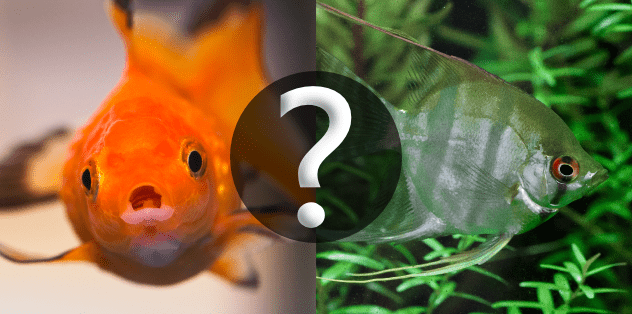If you have seen some of the other blogs and articles we have written you will often see we refer the reader to look at the Tropical Fish Profiles section of the website (as we have just done again!) if they are unsure about something to do with a certain fish. This is no exception as we want to talk about the compatibility of tropical fish and why it is so important.
When we talk about compatibility we are referring to what else you can put in to your fish tank with the fish you are looking at and how well it will fair being in a tank with specific other tank mates. With tropical fish keeping there are many tried and tested methods and although one person will say it won’t work, there will always be someone out there who has tried it and it has worked. When i say it has worked, the fish have survived!
 Survival isn’t the only thing you are looking for when keeping tropical fish though, it is to be able to give the fish the right environment for it to thrive in rather than the bare minimum that it manages to make it through just about.
Survival isn’t the only thing you are looking for when keeping tropical fish though, it is to be able to give the fish the right environment for it to thrive in rather than the bare minimum that it manages to make it through just about.
Although you could look at one of the African rift valley lakes or the Amazon river as examples and say that they all get on fine in their respective environments, this may be the case but unless you are going to fit the whole capacity of the lake or amazon river in to your living room aquarium you cannot really compare the 2. They work in the wild together because of the vast amount of space available and as such you cannot really compare the 2.
The “rules” as such as we see them that you should follow are:
- Big fish and small fish don’t mix, generally if a small fish will fit in a larger fish’ mouth then it will eventually, even if the larger fish didn’t intend to!
- Diet is extremely important and starving a certain type of fish of the diet they need because you can’t give it to others in the tank is not right and will lead to illness. For example keeping clown loach with malawis will work but you will end up starving the clown loach of their favoured food (blood worm) because if you feed malawis blood worm they will bloat and die.
- Water parameters vary greatly, so if we take discus who require a very low acidic pH and compare to say Frontosa from Lake Tanganyika who need a very high alkaline pH, we won’t be able to cater for both so at least one of the fish would suffer from relative poor water conditions.
- Keeping aggressive fish with placid fish is not best practice as the placid fish will not be able to relax and are going to be prone to stress and contracting stress related diseases.
This is just an outline of some of the key considerations as to why not all tropical fish are compatible with other tropical fish so research is always key and critical, but that is why we love this hobby so much, every day is a school day.


Related Posts
A Deeper Look In To Loach Fish Species
How Much Salt Should I Add To My Freshwater Aquarium
Everything You Need To Know About Using T5 Lights For Your Aquarium